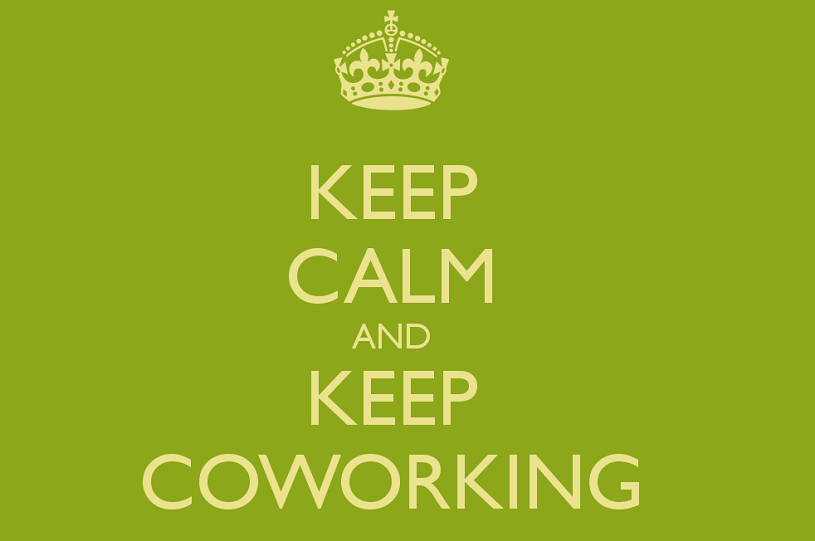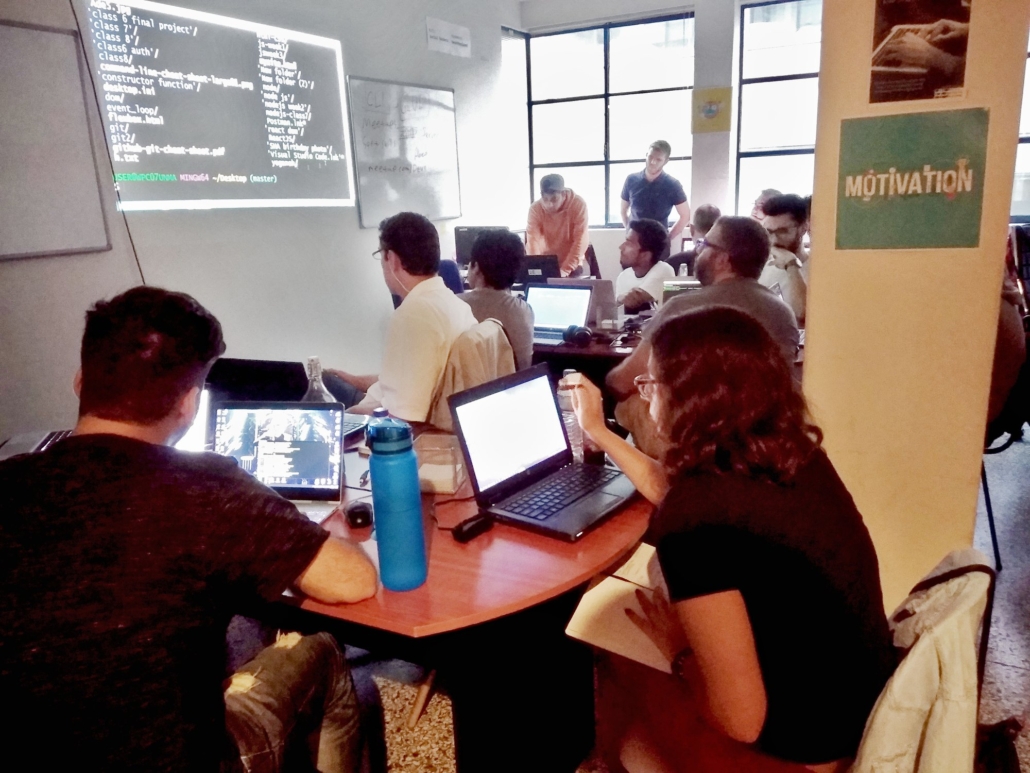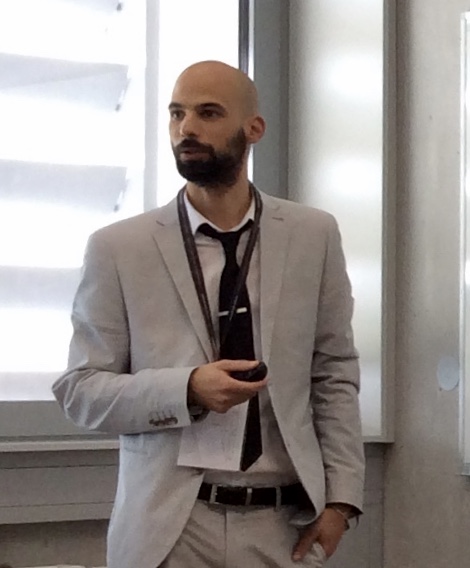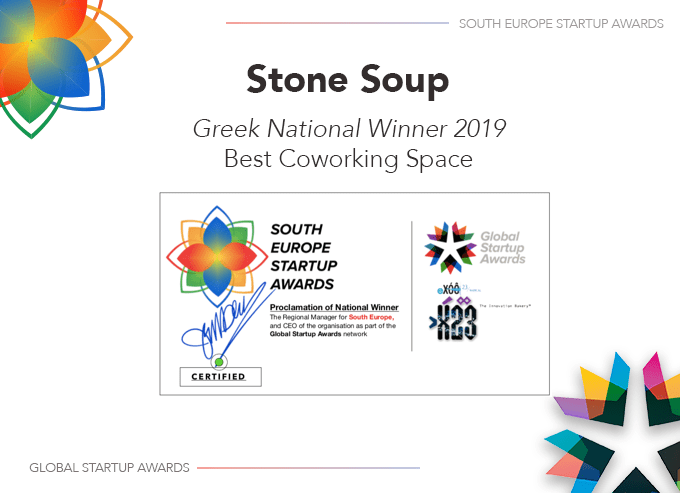Why flexible workspace will emerge stronger from COVID-19
Stone Soup is taking part in the discussions about the future of coworking and has frequent conversations with coworking operators and community managers from around the world. It is a collective effort to tackle the best way we can the current crisis and emerge stronger. The fight we are up against needs a united front.
The change will obviously happen
While things are slowly getting back to (the new) normal, one thing is for sure: Coworking as we know it will have to change to survive. Coworking spaces are known for their communal areas and shared amenities. However, keeping a coworking space safe in a post-coronavirus world will probably lead to more dividers for personal space and private offices.
Despite this tangible setback, industry professionals believe that in the long run, the coronavirus outbreak will not hamper appetites for “real-estate-as-a-service” models. In contrast, the belief is that the recovery from the crisis could serve to drive up demand for flexible office space.
Local or Global: Who has better chances to survive?
Each country has what we call a Local Champion: a homegrown player which competes with the international incumbents in each country. The local players are in a better position to handle local inquiries and manage their financial stability according to CEO of FlySpaces, Mario Berta.
Can we foresee the future using industry data?

The answer is no, unfortunately. Most economic forecasts, for the most part, are just guessing.
The problem is, there is very little data to go on. That’s because we are experiencing a black swan event. The term was popularised by author Nassim Nicholas Taleb in his 2007 book, The Black Swan: “The Impact of the Highly Improbable”. It talks about very low probability events that have an extremely high impact if they occur, like the CoronaVirus. So basically we’re in uncharted waters. There is no historical data to make forecasts, as we haven’t experienced anything like this. There are too many unknowns.
Exploring new behaviors

What we can do to draw some conclusions is to observe and understand 4 emerging behaviors of companies and individuals.
- Companies are investing in remote work infrastructure and learning how to do it. Remote work is an example of a trend that has been amplified by the CoronaVirus crisis. The growth of remote work is teaching companies that it’s easier to integrate independent workers into their teams.
- Companies will increasingly take advantage of the flexible terms of a coworking space rather than taking on long-term leases. The need for flexible terms will continue, perhaps even more rapidly. If anything, this crisis highlights why flexibility is valuable for companies.
- These behaviors are also happening on a personal level, as people have been seeking to reduce commitments and ownerships. There has also been a steady rise in independent work, with more freelancers and independent contractors.
- Similar to the “first time online shoppers” via e-commerce platforms, the crisis will generate a new number of tenants that will experience flexible office space and its benefits for the first time. Those tenants will most likely prefer flexible spaces over their permanent office in the future.
The pandemic is amplifying these trends and making them more powerful than they were before. The good news is that all of these trends – the reduction in long term commitments, the rise of independent work, and the desire for more flexibility and agility – will eventually push more people into a flexible workspace.
#3 reasons why flexible workspace should emerge stronger
Reason No. 1: The Need for Flexible Leases
Once the lockdown period ends, companies will lay more emphasis on cost optimization. Especially if the recovery is slow and halting, companies will probably look for options that will allow them to easily exit if they are forced to send employees home once more.
They will be seeking alternatives to traditional long-term office leases and there is an undeniable market demand for flexibility and enhanced tenant experience, which we expect to continue beyond the near-term negative economic impact of COVID-19.

Reason No. 2: Remote Workers Have to Work Somewhere
Many people are now just becoming comfortable with remote work for the first time and figuring out ways to make it efficient. That could mean more employees and employers become comfortable with it. But that doesn’t mean all those remote workers will work at home forever. After a couple of months of lockdown and working from a home environment – with distractions, not enough usable workspace, or reliable Internet access – our guess is that people will be eager to work from somewhere else.
Shared workspaces, nearer to a home location, may actually be the ideal solution for many in the future months. They will give workers a flexible workspace to work and have the essential social contact lockdown has robbed from so many, yet affording non-crowded, quiet and easy to use facilities.

Reason No. 3: Community is Key to Recovery
Entrepreneurs, business owners, and workers will need social networks and local connections more than ever to regain their footing. Community strength will be essential in helping people reconnect, build new networks, and support each other.
Coworking was an idea that was founded on community, however, it had become an industry driven by real estate. A race to monopolize the industry created workspaces that required ‘as many bums on seats as possible’. Community became an afterthought. Stone Soup was created in order to bring community back to coworking. Employing generous workspace and large, flexible work areas to encourage a sense of calm. We believe that human beings should work side-by-side, not on top of one another.







